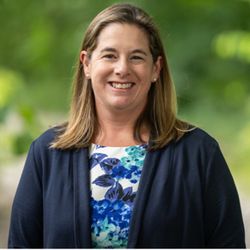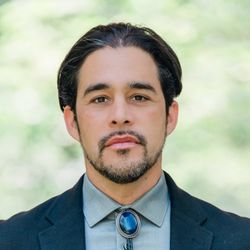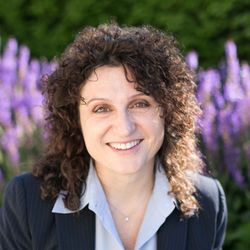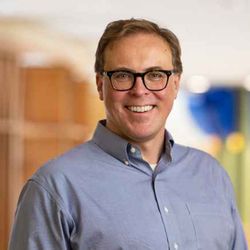Share

Latest episode

2. Why cooling inflation isn't saving your bank account
16:38||Season 10, Ep. 2Joanne Hsu, director of the University of Michigan Surveys of Consumers and research associate professor at the Institute for Social Research, specializes in the fields of household finance, consumer sentiment and the impact of economic expectations on the national economy. Hsu joins the Michigan Minds podcast to discuss her findings on current consumer sentiment, offering insight into persistent high prices and how the labor market is shaping the way Americans manage their budgets today.How do you see consumers responding to these additional budget constraints?The number one factor on consumers' minds is the persistence of high prices and tariffs are a major factor in that. Inflation, however, has come down, so Inflation being the rate of change of prices as opposed to just the price level itself, so inflation has slowed down quite a bit since 2022.But that doesn't mean prices have come down; prices have remained high and that's something that consumers continue to be very frustrated about. The thing is, we all want prices to come down, but historically speaking, it's really hard for prices to come down without something catastrophic happening in the economy, like a major recession. And a major recession will surely affect everyone in a very negative way.I think sometimes it can be hard for people who watch the macroeconomy, including policymakers, to square the fact that inflation has come down, but people are still so unhappy about how prices are eroding away at their living standards.Michigan Minds is produced by Greta Guest and hosted by Juan Ochoa. Jeremy Marble is the audio engineer and Hans Anderson provides social media animations. Listen to all episodes of the podcast.
More episodes
View all episodes

1. Toxic foods, food as medicine, epigenetics makes sense of nutritional triggers on health
19:21||Season 10, Ep. 1ANN ARBOR —News, advice and research about what we eat - and drink - and how it influences our health is inescapable.What we hear less about is exactly what's taking place inside the body when nutrition is considered bad or toxic, say ultraprocessed foods like our favorite packaged cookies, chips or frozen pizza, or good and healthy, those whole, methyl-donor-rich leafy veggies, beefs and eggs.If you want a deeper understanding, ask Dana Dolinoy. The answers are in epigenetics, her specialty.As a nutritional and environmental scientist and professor at the School of Public Health, she studies the changes that take place in response to nutrients. Her work digs deep down to the genes and DNA, at the epigenome, where the controls that turn genes on and off are located.Dolinoy is also director of the NIH-supported Michigan Life Stage Environmental Exposures and Disease Center and Michigan Medicine's Epigenomics Core, teams that advance research and understanding of the environmental causes of chronic diseases and conditions. She is also on the team that launched MI-CARES, the Michigan Cancer and Research on the Environment Study, which is recruiting 100,000 Michigan residents to find causes of and solutions to disease. More on the study.As Dolinoy discusses in this episode of Michigan Minds, epigenetics, "is actually a relatively new science. The term was first coined in the 1950s as a way to talk about the intersections of our genes in the environment."Michigan Minds is produced by Greta Guest and hosted by Michigan News staff. Jeremy Marble is the audio engineer and Hans Anderson provides social media animations. Listen to all episodes of the podcast.
11. How to make your holidays less wasteful and more joyful
22:34||Season 9, Ep. 11Shelie Miller, a professor in the University of Michigan's School for Environment and Sustainability and co-director of the Center for Sustainable Systems, spends a lot of her time in the weeds detailing the environmental impacts of our everyday choices.But people wanting to live more sustainably can make the most meaningful gains by focusing on three big-picture categories, she says: food, transportation and energy usage. That's no different during the holiday season—except for that it's a time with a unique emphasis on feasts, travel and spending time with friends and family in cozy quarters.Miller joins the Michigan Minds podcast to talk about taking on these big themes during the holidays without giving up our traditions or stressing over "green herrings" that aren't as sustainable as you might think.
10. Immigration raids lead to uptick in absenteeism and lower grades
19:53||Season 9, Ep. 10William Lopez joins the Michigan Minds podcast to discuss his findings on the effects of immigration raids, offering insight into how intensified enforcement efforts shape the well-being and resilience of students and their communities.Michigan Minds is produced by Greta Guest and hosted by Michigan News staff. Jeremy Marble is the audio engineer and Hans Anderson provides social media animations. Listen to all episodes of the podcast.
9. Semiconductor manufacturing on the rise in the United States
19:11||Season 9, Ep. 9Valeria Bertacco, the Mary Lou Dorf Collegiate Professor of Computer Science and Engineering, joins the Michigan Minds podcast to talk about semiconductors – how ubiquitous they are in our lives, why manufacturing moved overseas, and what it will take to produce them in the U.S.Bertacco's research explores hardware solutions for next generation computing and security. She is also the vice provost for engaged learning at the University of Michigan, supporting international partnerships and initiatives.
8. Hands on Makerspace builds confidence, opens opportunities for youth
21:22||Season 9, Ep. 8Nick Tobier, professor of art and design at the Penny W. Stamps School of Art and Design at the University of Michigan, focuses on collaborative projects in the public realm and the potential of public spaces.Nick is also the co-founder of the Detroit-based Brightmoor Makerspace, in partnership with Detroit Community Schools. Utilizing the ideals of the Waldorf method—learning with your head, heart and hands—youth and adults build their practical making skills, incubate business ideas and gain creative confidence.Through their federally funded "Neighbors Pavilions" project—houseless porches, originally created as outdoor classrooms during Covid, turned into public community spaces—the Makerspace was invited to present at the U.S. Pavilion at the Venice Architecture Biennale. In November, Tobier and two students from the Makerspace will speak at the closing ceremony of the international festival for some of the greatest architectural minds in the world.What are some of the skills that participants get to use at the Makerspace and what are they primarily working on?So we are in some ways, at times, what I would describe as 'militantly low tech'...we do a lot with our hands. We do a lot with power tools, honestly, like things that you could chop your fingers off with if you wanted to, but in some ways, straightforward dimensional lumber. So we build a lot of furniture. We built some living edge tables. We upcycle fashion right now, so there's a lot of tie-dying, screen printing, jewelry. We've gone from furniture to things that are approaching tiny houses, which is our next, I don't want to say frontier because that sounds too colonial and western expansion, but we've built things that you could live in. So although we build furniture and we do a lot of woodworking, I always say we're not training woodworkers, but we're building creative confidence. So if you use a chop saw for the first time or something you were scared of, you think 'Oh, it's possible I can do something that I didn't think was possible,' and then, 'What do I want to do with my life?' rather than 'What am I left with because that's what's open to me?'
7. Health and health care's influence on political engagement
20:15||Season 9, Ep. 7Scott L. Greer, a professor of health management and policy and of global public health in the University of Michigan School of Public Health and a political science professor, shares decades of studies documenting the shaping of political engagement and poor health and negative health care experiences.Greer joins the Michigan Minds podcast and discusses the ways politics and public health are colliding to affect vaccines, preparedness to fight the spread of contagious disease, humanitarian outreach and HIV/AIDS programs.